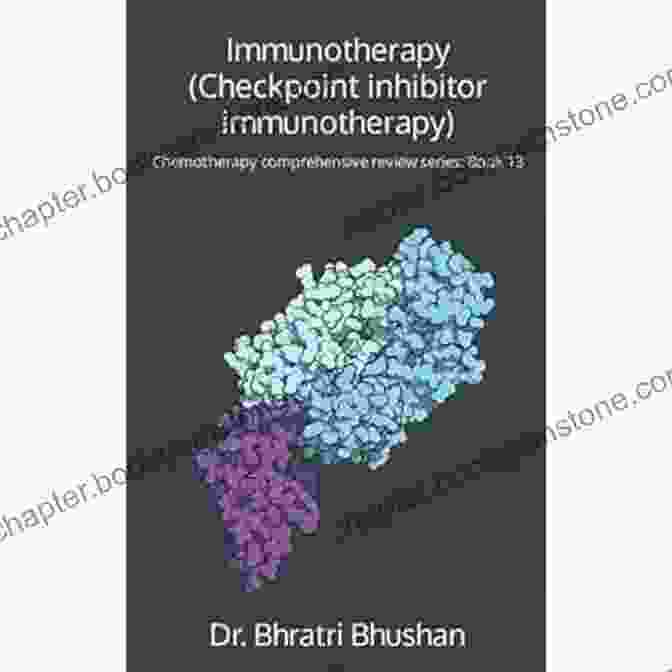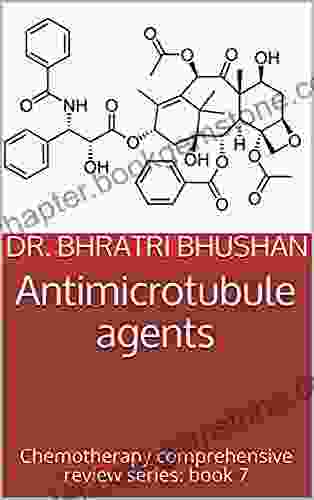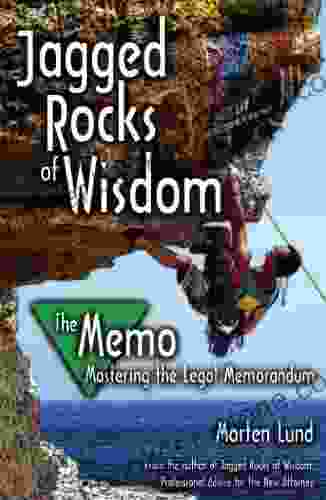Antimicrotubule Agents: A Comprehensive Review in Chemotherapy

Cancer is a leading cause of death worldwide, and chemotherapy remains a cornerstone of cancer treatment. Among the various classes of chemotherapeutic agents, antimicrotubule agents occupy a significant position due to their broad-spectrum activity against solid and hematological malignancies. This article provides a comprehensive review of antimicrotubule agents, including their mechanism of action, classification, clinical applications, resistance mechanisms, and future perspectives.
Mechanism of Action
Antimicrotubule agents exert their cytotoxic effects by targeting tubulin, a protein that forms the structural backbone of microtubules. They bind to specific sites on tubulin dimers and disrupt microtubule dynamics, which are essential for cell division, cell motility, and intracellular transport. By destabilizing microtubules, antimicrotubule agents block cell cycle progression, leading to cell death.
5 out of 5
| Language | : | English |
| File size | : | 444 KB |
| Text-to-Speech | : | Enabled |
| Screen Reader | : | Supported |
| Enhanced typesetting | : | Enabled |
| Print length | : | 49 pages |
| Lending | : | Enabled |
Classification
Antimicrotubule agents can be classified into two main groups based on their mechanism of action: microtubule stabilizers and microtubule destabilizers.
Microtubule Stabilizers
Microtubule stabilizers promote the formation and stabilization of microtubules. They bind to the tubulin-tubulin interface and prevent the normal disassembly of microtubules during mitosis. Vinca alkaloids, such as vinblastine and vincristine, are examples of microtubule stabilizers.
Microtubule Destabilizers
Microtubule destabilizers disrupt the polymerization of microtubules and promote their disassembly. They bind to the tubulin subunits and interfere with the cooperative assembly of microtubules. Taxanes, such as paclitaxel and docetaxel, epothilones, such as ixabepilone and patupilone, and kinesin spindle proteins inhibitors, such as monastrol and ABT-751, are examples of microtubule destabilizers.
Clinical Applications
Antimicrotubule agents are widely used in the treatment of a variety of cancers, including breast cancer, lung cancer, ovarian cancer, leukemia, and lymphoma. They can be used as single agents or in combination with other chemotherapeutic agents or targeted therapies.
Breast Cancer
Taxanes, such as paclitaxel and docetaxel, are commonly used in the treatment of breast cancer. They are often combined with anthracyclines, such as doxorubicin, or trastuzumab, a monoclonal antibody targeting the HER2 receptor, to improve efficacy.
Lung Cancer
Vinca alkaloids, such as vinblastine and vincristine, have been used to treat lung cancer. However, the advent of newer agents, such as taxanes and targeted therapies, has limited their role.
Ovarian Cancer
Paclitaxel and docetaxel are also commonly used in the treatment of ovarian cancer. They are often combined with platinum-based agents, such as cisplatin or carboplatin, to achieve better outcomes.
Leukemia
Vincristine and other vinca alkaloids are used in the treatment of acute lymphoblastic leukemia. They are typically combined with other chemotherapeutic agents, such as prednisone and methotrexate.
Lymphoma
Antimicrotubule agents, such as vincristine and docetaxel, are also used in the treatment of various lymphomas. They can be combined with other chemotherapeutic agents, targeted therapies, or immunotherapies.
Resistance Mechanisms
Resistance to antimicrotubule agents remains a significant challenge in cancer treatment. Various mechanisms have been identified that contribute to drug resistance, including:
Altered Tubulin Expression or Mutations
Changes in tubulin expression or mutations can affect the binding of antimicrotubule agents to tubulin. These alterations can lead to decreased drug sensitivity or complete resistance.
Overexpression of Drug Efflux Pumps
Overexpression of drug efflux pumps, such as P-glycoprotein, can result in the efflux of antimicrotubule agents from cancer cells. This can lead to reduced intracellular drug concentrations and decreased efficacy.
Microtubule Associated Proteins
Microtubule-associated proteins, such as tau proteins or stathmin, can modulate microtubule dynamics and affect the response to antimicrotubule agents. Alterations in the expression or function of these proteins can contribute to drug resistance.
Future Perspectives
Research efforts are ongoing to develop new antimicrotubule agents and overcome resistance mechanisms. Some promising strategies include:
Novel Tubulin Binding Sites
Efforts are being made to identify and target novel tubulin binding sites that are less susceptible to resistance mechanisms.
Combination Therapies
Combining antimicrotubule agents with other chemotherapeutic agents or targeted therapies can enhance efficacy and reduce resistance.
Overcoming Drug Efflux

Strategies that overcome drug efflux, such as using inhibitors or modulating efflux pump expression, can improve the efficacy of antimicrotubule agents.
Antimicrotubule agents play a vital role in cancer chemotherapy, offering a broad-spectrum of activity against various malignancies. Understanding their mechanism of action, clinical applications, resistance mechanisms, and future perspectives is essential for optimizing their use and improving patient outcomes. Continued research efforts are crucial to overcome resistance and develop novel antimicrotubule agents for the effective treatment of cancer.
5 out of 5
| Language | : | English |
| File size | : | 444 KB |
| Text-to-Speech | : | Enabled |
| Screen Reader | : | Supported |
| Enhanced typesetting | : | Enabled |
| Print length | : | 49 pages |
| Lending | : | Enabled |
Do you want to contribute by writing guest posts on this blog?
Please contact us and send us a resume of previous articles that you have written.
 Best Book
Best Book Page Flip
Page Flip Bookshelf
Bookshelf Literary loom
Literary loom Chapter
Chapter Bookish
Bookish PageTurner
PageTurner Bibliophile
Bibliophile Story
Story Inkwell
Inkwell Bookworm
Bookworm Labyrinth
Labyrinth Plot Twist
Plot Twist Prose
Prose Paperback
Paperback Storyteller
Storyteller Sanctuary
Sanctuary Fiction
Fiction Reading
Reading Chronicle
Chronicle Read
Read Ray T Malbrough
Ray T Malbrough Frank Walters
Frank Walters Ray Scapinello
Ray Scapinello Yatir Nitzany
Yatir Nitzany Selin Kiazim
Selin Kiazim Lee Mylne
Lee Mylne Spire Study System
Spire Study System Gary Westphalen
Gary Westphalen Patrick Trese
Patrick Trese Samantha Allen
Samantha Allen Julia A Simms
Julia A Simms Luis Angel Echeverria
Luis Angel Echeverria Krishna Swaroop Achanta
Krishna Swaroop Achanta Gerry Cheevers
Gerry Cheevers Charlotte Dunford
Charlotte Dunford Ken Baird
Ken Baird Peter Grant
Peter Grant Sue Feldman
Sue Feldman Eileen Tracy
Eileen Tracy Steven C Dinero
Steven C Dinero Snap Summaries
Snap Summaries Alf Alderson
Alf Alderson James A Cashin
James A Cashin Charles Euchner
Charles Euchner Pam Gaffin
Pam Gaffin Eric D Miller
Eric D Miller Abby Jimenez
Abby Jimenez Dana Fredsti
Dana Fredsti Dan O Neill
Dan O Neill Steve Schwartz
Steve Schwartz Penny Hastings
Penny Hastings Greg Seymour
Greg Seymour Daniel Francis
Daniel Francis Knowledge Tree
Knowledge Tree William E Hearn
William E Hearn R G Richardson
R G Richardson Stuart Woods
Stuart Woods L Blair
L Blair Denise Hamilton
Denise Hamilton Heather Fawcett
Heather Fawcett Hank Wysocki
Hank Wysocki Eliot Schrefer
Eliot Schrefer Alfie Kohn
Alfie Kohn Mithu Sengupta
Mithu Sengupta Allison Williams
Allison Williams Paul Crask
Paul Crask Dr Luz Claudio
Dr Luz Claudio Rohan Agarwal
Rohan Agarwal Conner Gorry
Conner Gorry W H Hudson
W H Hudson Jermaine Marshall
Jermaine Marshall Ryan Judkins
Ryan Judkins William D Frank
William D Frank Laverne Mordella
Laverne Mordella Aaron Linsdau
Aaron Linsdau Julie Miller
Julie Miller Philip Donlay
Philip Donlay Abi Elphinstone
Abi Elphinstone Kd Sofia Sigil
Kd Sofia Sigil Joe Glickman
Joe Glickman David Wilkinson
David Wilkinson Lynn Austin
Lynn Austin Jeff Gill
Jeff Gill Carla Hayden
Carla Hayden Hollie Bell Schinzing
Hollie Bell Schinzing Wolfgang Daunicht
Wolfgang Daunicht Aayush Upadhyay
Aayush Upadhyay Timothy Dickeson
Timothy Dickeson Edward C Klatt
Edward C Klatt Johnny Lung
Johnny Lung Blake Sebring
Blake Sebring Mark Ryan
Mark Ryan Catherine Carrigan
Catherine Carrigan Achim K Krull
Achim K Krull Abdul Al Lily
Abdul Al Lily Kanchan Suyash
Kanchan Suyash Dean Koontz
Dean Koontz Marshal Shlafer
Marshal Shlafer Jim Ziolkowski
Jim Ziolkowski Gretel Ehrlich
Gretel Ehrlich Brad Taylor
Brad Taylor Marc Cameron
Marc Cameron Frederick Forsyth
Frederick Forsyth W Scott Koenig
W Scott Koenig Ace Atkins
Ace Atkins H M Conroy
H M Conroy Achy Obejas
Achy Obejas Jacqueline Langwith
Jacqueline Langwith Jason Elliot
Jason Elliot Asha Kaul
Asha Kaul Loris Chen
Loris Chen Lori A Smolin
Lori A Smolin 2nd Edition Kindle Edition
2nd Edition Kindle Edition Vibrant Publishers
Vibrant Publishers V S Naipaul
V S Naipaul Katie Mangelsdorf
Katie Mangelsdorf Doug Knutson
Doug Knutson 6th Edition Kindle Edition
6th Edition Kindle Edition Second Edition New Edition Updated Revised...
Second Edition New Edition Updated Revised... Peter Heller
Peter Heller Glenda Durano
Glenda Durano Achille Rubini
Achille Rubini Allan Sefton
Allan Sefton James Oseland
James Oseland John Harrison
John Harrison Matthew Bowling
Matthew Bowling Boris Kachka
Boris Kachka Corinna Cooke
Corinna Cooke Becki Willis
Becki Willis Kaplan Test Prep
Kaplan Test Prep S Elia
S Elia Sally Miller
Sally Miller Con Coughlin
Con Coughlin Judy Lipson
Judy Lipson R A Dalkey
R A Dalkey Jasmina Susak
Jasmina Susak Robert Vaughn
Robert Vaughn Kathryn Reed
Kathryn Reed Gary Wonning
Gary Wonning Mike Humfreville
Mike Humfreville Alberto Granado
Alberto Granado Daniel Pautrat
Daniel Pautrat 1st Edition Kindle Edition
1st Edition Kindle Edition Steven Hawthorne
Steven Hawthorne Matt Doeden
Matt Doeden Poetry Row
Poetry Row Benjamin Southerland
Benjamin Southerland Karen Marie Moning
Karen Marie Moning Oscar Hijuelos
Oscar Hijuelos Kenny Dill
Kenny Dill Melissa Abramovitz
Melissa Abramovitz Steven Konkoly
Steven Konkoly Lan Sluder
Lan Sluder Leela Punyaratabandhu
Leela Punyaratabandhu Stephanie Rosenbloom
Stephanie Rosenbloom Greyson Ferguson
Greyson Ferguson Bhavesh Mamtani
Bhavesh Mamtani Pam Coburn
Pam Coburn Edwin C Bearss
Edwin C Bearss Anthony Dalton
Anthony Dalton Andrew Lees
Andrew Lees Tim Burford
Tim Burford Debbie J Jenkins
Debbie J Jenkins Aftab Hamid
Aftab Hamid James Rushforth
James Rushforth Adam Woog
Adam Woog Ariel Dorfman
Ariel Dorfman David Quammen
David Quammen Dave Hanson
Dave Hanson Shirley Soltesz Steiner
Shirley Soltesz Steiner Bob Goddard
Bob Goddard Samuel T Reddy
Samuel T Reddy Andrew Graham Yooll
Andrew Graham Yooll Sophy Hunte
Sophy Hunte Iman Hami
Iman Hami Timothy Hallinan
Timothy Hallinan Rolls Canardly
Rolls Canardly Maria Golia
Maria Golia Isla Gordon
Isla Gordon John Muir
John Muir Brian Winter
Brian Winter John Lyons
John Lyons Eriko Sato
Eriko Sato Janet Engle
Janet Engle Culture Smart
Culture Smart Stanley Cohen
Stanley Cohen Scott Dominic Carpenter
Scott Dominic Carpenter Murray R Spiegel
Murray R Spiegel Nate Turner
Nate Turner Katherine Routledge
Katherine Routledge Abul K Abbas
Abul K Abbas Aaron H Goldberg
Aaron H Goldberg Brian Burke
Brian Burke Bryan Gillis
Bryan Gillis Ida Pfeiffer
Ida Pfeiffer Franklin Horton
Franklin Horton Peter Mark Roget
Peter Mark RogetK D
 Baby Professor
Baby Professor Ronie Kendig
Ronie Kendig Adam Kimelman
Adam Kimelman Mike Gibson
Mike Gibson Cherise Sinclair
Cherise Sinclair Stuart James Amei
Stuart James Amei Philipp Winterberg
Philipp Winterberg George Bernard Shaw
George Bernard Shaw K Reynolds James
K Reynolds James Anna Kaminski
Anna Kaminski Stacey Barrett
Stacey Barrett Clive Cussler
Clive Cussler Achref Hassini
Achref Hassini Morten Lund
Morten Lund Gavin Francis
Gavin Francis Kyoan
Kyoan Isobel Williams
Isobel Williams Rough Guides
Rough Guides Jack L Roberts
Jack L Roberts Kenneth Pickering
Kenneth Pickering Zachary Willey
Zachary Willey Tiziano Terzani
Tiziano Terzani Sarah Retter
Sarah Retter Dk Eyewitness
Dk Eyewitness Insight Guides
Insight Guides Tina Tam
Tina Tam M J Mcgrath
M J Mcgrath Brian J Sommers
Brian J Sommers Termite Terry Singleton
Termite Terry Singleton Christian Heath
Christian Heath Sir John Franklin
Sir John Franklin Steve Hindman
Steve Hindman Adam J Wright
Adam J Wright 5th Edition Kindle Edition
5th Edition Kindle Edition Mark Richardson
Mark Richardson Robert Jackson Bennett
Robert Jackson Bennett Triumphant Test Prep
Triumphant Test Prep Todd Lammle
Todd Lammle Natalya Androsova
Natalya Androsova Seymour Lipschutz
Seymour Lipschutz Jane Yolen
Jane Yolen Kenny Tan
Kenny Tan Tahir Shah
Tahir Shah April Stephens
April Stephens M J Rose
M J Rose George Sandford
George Sandford 3rd Edition Kindle Edition
3rd Edition Kindle Edition Kerry Colburn
Kerry Colburn Peter Robb
Peter Robb R I Chalmers
R I Chalmers Chris Losh
Chris Losh Lizzie Lane
Lizzie Lane Scott Pratt
Scott Pratt Brandon Stanton
Brandon Stanton Richard P Clem
Richard P Clem Alan Pritchard
Alan Pritchard Phil Martin
Phil Martin Vincent Ardizzone
Vincent Ardizzone John Pitt
John Pitt Claire Agutter
Claire Agutter Benedict Allen
Benedict Allen Jane Clapp
Jane Clapp Mary Jane Walker
Mary Jane Walker Gregory Crouch
Gregory Crouch Stewart M Green
Stewart M Green Bruce Berglund
Bruce Berglund A R Vasishtha
A R Vasishtha Lilia Moritz Schwarcz
Lilia Moritz Schwarcz Gord Stellick
Gord Stellick A J Mackinnon
A J Mackinnon Springer Publishing Company
Springer Publishing Company Dave Butler
Dave Butler Greg Jacobs
Greg Jacobs Not For Tourists
Not For Tourists Arden Pala
Arden Pala Paul Brummell
Paul Brummell Steven L Emanuel
Steven L Emanuel Jeevan Vasagar
Jeevan Vasagar 7th Edition Kindle Edition
7th Edition Kindle Edition Diana Gabaldon
Diana Gabaldon Tim Macgabhann
Tim Macgabhann F R Lifestyle
F R Lifestyle David A Goldstein
David A Goldstein Magi Nams
Magi Nams Jennifer Kingsley
Jennifer Kingsley Jon Sterngass
Jon Sterngass One Exam Prep
One Exam Prep Eleanor Hogan
Eleanor Hogan William Gilbert
William Gilbert Maha Alkurdi
Maha Alkurdi Book Note Gifts
Book Note Gifts Ray Krueger Koplin
Ray Krueger Koplin Second Edition Kindle Edition
Second Edition Kindle Edition John Mclachlan
John Mclachlan Tim Keesee
Tim Keesee Petru Popescu
Petru Popescu Robert Edison Fulton
Robert Edison Fulton Phil G Tang
Phil G Tang Kristine Ellingson
Kristine Ellingson Joie Jager Hyman
Joie Jager Hyman Sherryl Woods
Sherryl Woods Grant Blackwood
Grant Blackwood David Aretha
David Aretha Omari Bouknight
Omari Bouknight Jonathan Raban
Jonathan Raban Lee Gutteridge
Lee Gutteridge Cynthia Swanson
Cynthia Swanson Julia Alvarez
Julia Alvarez Sean Go
Sean Go Alan R Cole
Alan R Cole Nathan Turner
Nathan Turner Maryetta Ackenbom
Maryetta Ackenbom Jitender Singh
Jitender Singh Obongifreke Inyang
Obongifreke Inyang William S Crooker
William S Crooker Andrew Grant Wood
Andrew Grant Wood Todd Phillips
Todd Phillips Theodora Papatheodorou
Theodora Papatheodorou Joyce Carol Oates
Joyce Carol Oates Orji Onyebuchi
Orji Onyebuchi Alex Kerr
Alex Kerr Tim Rock
Tim Rock Ethelyn Geschwind
Ethelyn Geschwind John King
John King Ian Ball
Ian Ball Peter Schinkai
Peter Schinkai Sylvia Day
Sylvia Day Kathy Campitelli
Kathy Campitelli Perce Harpham
Perce Harpham Andre Moubarak
Andre Moubarak Mina Lebitz
Mina Lebitz Paul Heiney
Paul Heiney Gen Tanabe
Gen Tanabe Nina Belile
Nina Belile Penelope Douglas
Penelope Douglas Deborah Manley
Deborah Manley Nicholas Ruddick
Nicholas Ruddick John Gookin
John Gookin Rich Dossan
Rich Dossan Norman Hall
Norman Hall Viktoriya Tutev
Viktoriya Tutev Pallas Snider
Pallas Snider Arthur Chichester
Arthur Chichester Joel A Dombrowski
Joel A Dombrowski Argo Brothers
Argo Brothers Achusim Michael
Achusim Michael Brian Smith
Brian Smith Steven Cowie
Steven Cowie Eva Zonnios
Eva Zonnios Bruce Gernon
Bruce Gernon Sjaak Laan
Sjaak Laan George Cantor
George Cantor Deb Spera
Deb Spera Aldo Leopold
Aldo Leopold Tayyip Oral
Tayyip Oral Vidya Subramanian
Vidya Subramanian Richard Post
Richard Post Shrm Test Prep Team
Shrm Test Prep Team Doug Feldmann
Doug Feldmann Sian O Gorman
Sian O Gorman Stephen C Doyle
Stephen C Doyle Goldmine Reads
Goldmine Reads Moh Kolli Carnet
Moh Kolli Carnet Hugh Monney
Hugh Monney P T Shank
P T Shank Mark Kurlansky
Mark Kurlansky Sharon Boyd
Sharon Boyd Mat Gilfedder
Mat Gilfedder Tracy Brown Collins
Tracy Brown Collins Liisa Vexler
Liisa Vexler Sheila O Flanagan
Sheila O Flanagan Andrew Jalbert
Andrew Jalbert Marianne Hering
Marianne Hering Allyson Ambrose
Allyson Ambrose John Carpenter
John Carpenter Lena Diaz
Lena Diaz Carla Mooney
Carla Mooney Sophie Claire
Sophie Claire Bernard Cornwell
Bernard Cornwell Vb Leghorn
Vb Leghorn Daisy Taylor
Daisy Taylor Ian Durston
Ian Durston Christopher Black
Christopher Black Mary E Trimble
Mary E Trimble Michael Reid
Michael Reid Magic Guidebooks
Magic Guidebooks Jonathan Gourlay
Jonathan Gourlay Tony Barnhart
Tony Barnhart Kate Hoskins
Kate Hoskins Julian Mcdougall
Julian Mcdougall Ric Hajovsky
Ric Hajovsky John T Moore
John T Moore Mathivanan Palraj
Mathivanan Palraj Tom Mattson
Tom Mattson Samuel Willard Crompton
Samuel Willard Crompton Christian Wolfe
Christian Wolfe Simone Braverman
Simone Braverman Katie Peuvrelle Ma
Katie Peuvrelle Ma Edwidge Danticat
Edwidge Danticat Cynthia Snyder Dionisio
Cynthia Snyder Dionisio A M Shine
A M Shine Katherine Nouri Hughes
Katherine Nouri Hughes Ghassan Moussawi
Ghassan Moussawi Elizabeth Bohorquez Rn
Elizabeth Bohorquez Rn P M Lane
P M Lane Antoinette May
Antoinette May Jennifer Bohnet
Jennifer Bohnet Sally Bendersky
Sally Bendersky Ashley Oliphant
Ashley Oliphant Murray Shukyn
Murray Shukyn Said Hasyim
Said Hasyim Jens Eriksen
Jens Eriksen Shaan Patel
Shaan Patel Howard Frank Mosher
Howard Frank Mosher Proper Education Group
Proper Education Group Lucy Postgate
Lucy Postgate David Archer
David Archer Mark Tredinnick
Mark Tredinnick Larry Gonick
Larry Gonick Marjorie Agosin
Marjorie Agosin Sparknotes
Sparknotes Mark Walters
Mark Walters Aaron Chapman
Aaron Chapman Patrick Hill
Patrick Hill Stewart Giles
Stewart Giles Soon Ho Jeon
Soon Ho Jeon Stephen Hui
Stephen Hui Mauricio Fau
Mauricio Fau Ken Ilgunas
Ken Ilgunas Josh Pahigian
Josh Pahigian Belinda Jones
Belinda Jones Lisa See
Lisa See Anne K Brown
Anne K Brown Steve Berry
Steve Berry Jake Maddox
Jake Maddox Geoffrey Wolff
Geoffrey Wolff Ryan Dale
Ryan Dale Mieke Leenders
Mieke Leenders Nick Popaditch
Nick Popaditch Chaz Van Heyden
Chaz Van Heyden Michael Palin
Michael Palin Tara L Kuther
Tara L Kuther Cpt Exam Prep Team
Cpt Exam Prep Team Peter Levin
Peter Levin Jeffrey L Buller
Jeffrey L Buller Dave Hadfield
Dave Hadfield David Chapin
David Chapin Elin Hilderbrand
Elin Hilderbrand Risto Pakarinen
Risto Pakarinen Patrick Leigh Fermor
Patrick Leigh Fermor 2 Edition Kindle Edition
2 Edition Kindle Edition Wizer
Wizer Borja Loma Barrie
Borja Loma Barrie Blake Boles
Blake Boles Ali Khan
Ali Khan Henry Walter Bates
Henry Walter Bates Iain Campbell
Iain Campbell Timothy Egan
Timothy Egan Todd Denault
Todd Denault John Steinbeck
John Steinbeck Wayne Stewart
Wayne Stewart Rezaul Bahar
Rezaul Bahar Ascencia
Ascencia Shawna Richer
Shawna Richer Sarah Spencer
Sarah Spencer Francis Parkman
Francis Parkman Dan Davis
Dan Davis Robert Birkby
Robert Birkby Bob Cary
Bob Cary Eric Zweig
Eric Zweig James Barrington
James Barrington Bookrags Com
Bookrags Com Jamie Watts
Jamie Watts Silke Noll
Silke Noll Felicity Pine
Felicity Pine Rob Soria
Rob Soria Eboo Patel
Eboo Patel Jules Hayes
Jules Hayes Rae Ellen Lee
Rae Ellen Lee Guinevere Durham
Guinevere Durham Saeid Atoofi
Saeid Atoofi Michael Mcinnis
Michael Mcinnis Rob Eastaway
Rob Eastaway Robert Arellano
Robert Arellano Tad Fitch
Tad Fitch Marteeka Karland
Marteeka Karland Michael J Totten
Michael J Totten Aiva Books
Aiva Books Sport Hour
Sport Hour Angie Papple Johnston
Angie Papple Johnston Ash Davidson
Ash Davidson R Wayne Stacy
R Wayne Stacy Nick Hobgood
Nick Hobgood Adam Mansbach
Adam Mansbach Anna Greathead
Anna Greathead Rob Vollman
Rob Vollman Jack Summers
Jack Summers Firefighter Now
Firefighter Now Luca Brambilla
Luca Brambilla Peter Avery
Peter Avery Domingo Faustino Sarmiento
Domingo Faustino Sarmiento Nathan Bair
Nathan Bair Aaron Robinet
Aaron Robinet Jayme Adelson Goldstein
Jayme Adelson Goldstein Ron Siliko
Ron Siliko
Light bulbAdvertise smarter! Our strategic ad space ensures maximum exposure. Reserve your spot today!
 Brody PowellFollow ·6.5k
Brody PowellFollow ·6.5k Clarence BrooksFollow ·14.3k
Clarence BrooksFollow ·14.3k Devin CoxFollow ·10.1k
Devin CoxFollow ·10.1k Blake KennedyFollow ·5.8k
Blake KennedyFollow ·5.8k Allen ParkerFollow ·10.8k
Allen ParkerFollow ·10.8k Colin FosterFollow ·18.4k
Colin FosterFollow ·18.4k Eric NelsonFollow ·14.7k
Eric NelsonFollow ·14.7k Jon ReedFollow ·18.5k
Jon ReedFollow ·18.5k

 Elias Mitchell
Elias MitchellTravels in False Binary: Exploring the Complexities of...
In a world rigidly...

 Ray Blair
Ray BlairTreason: An Electrifying Chapter in the Stone Barrington...
Prepare yourself for an adrenaline-fueled...

 Bryan Gray
Bryan GrayGo De Rass To Sleep Jamaican Translation: A Comprehensive...
The vibrant and...

 Victor Turner
Victor TurnerFearless: One Woman, One Kayak, One Continent
In 2018, Sarah...
5 out of 5
| Language | : | English |
| File size | : | 444 KB |
| Text-to-Speech | : | Enabled |
| Screen Reader | : | Supported |
| Enhanced typesetting | : | Enabled |
| Print length | : | 49 pages |
| Lending | : | Enabled |















